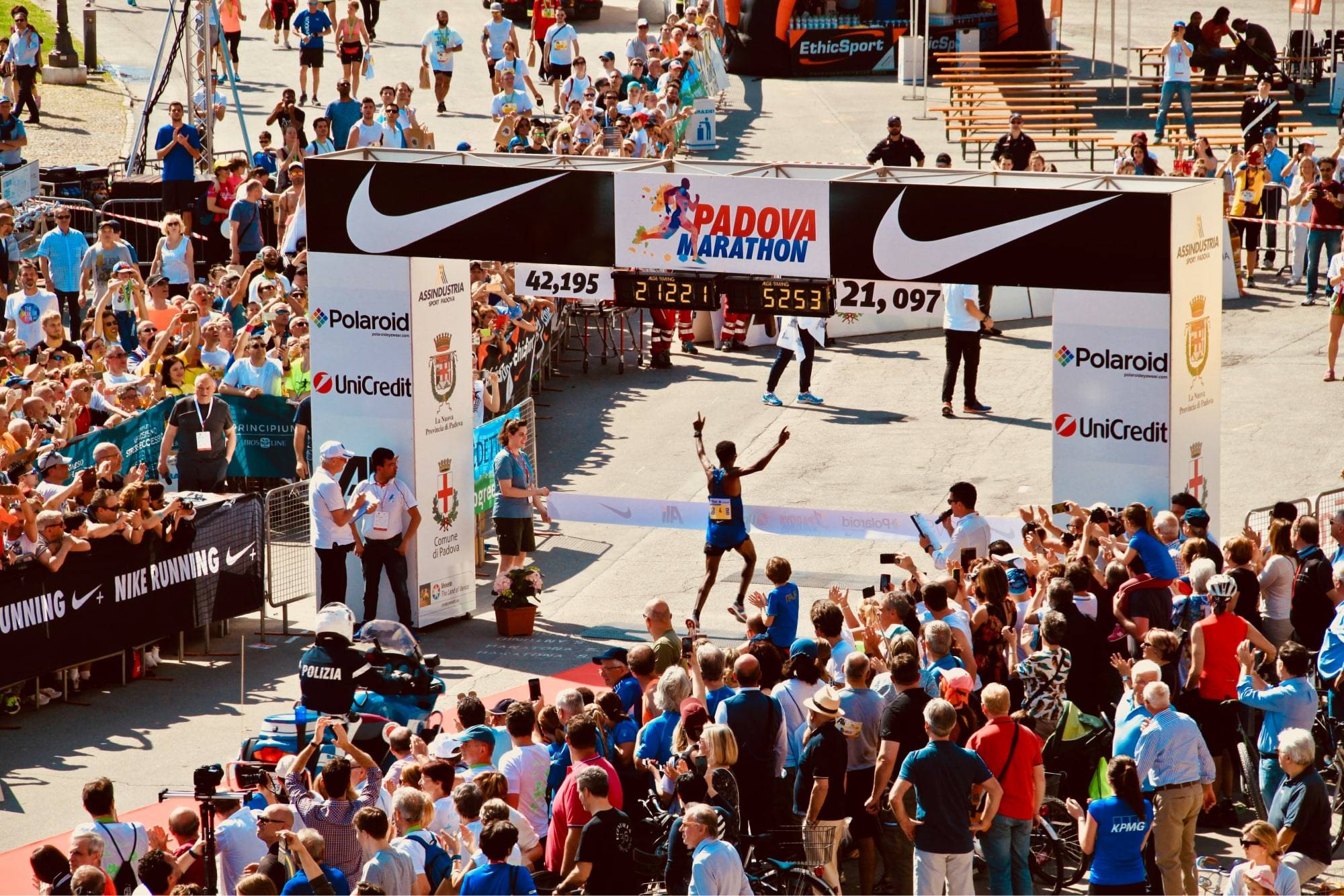Runners who achieve impressive results without setting goals are extremely rare. Each runner has their reasons for running fast. You may want to win a prize in a marathon, outrun “that person,” set a personal best, or win a small race.
All these goals spur excitement. Scientists call them external motivators. In other words, we run harder because we hope to get something in return.
Without strategic goal setting, you cannot achieve good results because our brains must have something to strive for. If you don’t have a goal, you won’t be encouraged to improve yourself.Before discussing the most useful running goals, we will review the different types of goals.
Types of Goals
We can divide all the running goals into three groups:
- Outcome goals
- Process goals
- Performance goals
The outcome goal aims for the end result and is often beyond your control. Types of outcome goals can include running in your first marathon, winning an Olympic medal, finishing a race in the TOP-10, and so on. In short, if you set the overall purpose to win the race without knowing who will compete against until the last moment. Thus, you are doing everything possible to achieve this goal, but it is not entirely up to you.
Process goals are those that are completely within your control. They are the most important for your victories and sports growth. An example of process goal in sports could be doing CrossFit twice a week, running 30 minutes a day, or strength training two/three times a week. As you see, these goals are kind of short-termed, but still important. The main thing is frequency and consistency.
Performance goals as the name implies, are aimed at improving your personal performance. These are long-term goals that take a long time to achieve—for example, running under an hour in the 10K.
What Goals are More Important?
There is no clear answer to this question since each goal is important in its way. We can consider all purposes in conjunction with each other, so you understand what will be most required for your case.
Process goals vs outcome goals. Both of them are important and it is impossible to achieve the second goal without fulfilling the first. Simply put, the outcome goals are those that you want to reach at the end, and the process goals help you get there. But, the process goals should prevail, since the achievement of the process goals directly affects the ability to achieve the outcome goal.
Process vs performance goals. These goals work great in tandem, because, for example, if you set a goal to run faster in a 5k, you must constantly fulfill the process goals: run the required distance daily, do strength training, and do breath training.
All three types of goals are interconnected and have their specific importance, so it is better to set targets for each and strive for them. That way, you will be able to achieve good results in daily performance and in marathons.
What is the SMART Goal?
When choosing goals for running, use the SMART abbreviation. What does it mean?
- S − the goal must be specific and have some result;
- M − the goal must be measured. For example, the time in which you run a certain distance;
- A − the selected goal can be achieved;
- R − the purpose must be relevant and really important;
- T − the target must be time-based, then there will be an incentive to achieve it. For example, run 5 kilometers in a month;
It is important to remember that you must set realistic running goals. For example, if you set short-term goals for running a 5k, you need to choose those that will help you run the 5k in the time you need. To run such a distance perfectly, it is good to add yoga twice a week to your 5k training plan, run 5 times a week, and eat healthy foods every day. To achieve a long-term goal, you must stick to short-term goals.Now let’s move on to the top 10 goals that are the most relevant and suitable for everyone, regardless of the types of running and running experience.
TOP 10 Running Goals
1. Run Once a Week
This is a great target for beginners who want to achieve good results but do not know where to start. Begin with running once a week. Later you can add to your workload and move on to more serious goals.
2. Do Strength Training on Weekends
Every runner knows that just running is not enough – you need to do strength training regularly to develop muscles and endurance. Studies prove that strength workouts help to achieve great results in different races. So add strength training on the weekends.
3. Do a Warm-Up Before Every Run
If you want to choose an easily achievable goal that will give you a great advantage in the future, use this one. Warming up before running prepares the body for exercise and prevents injury.
4. Run a Mile/Two/etc in Certain Amount of Time
This is a target that suits both the newbies and the experienced runners, as run times can vary. You see your progress and train your speed and endurance. Two in one, which is great.
5. Run Your First Half Marathon
This is a great goal if you are a beginner, but also a good runner with some training experience.
6. Run Your First Marathon
If you’re already an experienced half marathon runner, a full marathon can be your next purpose. Such a target is an indicator of your growth as a runner. You will have to work hard for even more than one month, but the result will be worth it.
7. Run 30 days without a Break
An excellent goal for strengthening your own willpower. Every morning, despite rain, mud, heat or cold, sleepiness, calluses, or sprains, you should go outside and run.
8. Try a New Type of Running
If you’re used to running on the street, try trail running once a week. This is an awesome workout for the body and the brain.
9. Train Your Breathing
One of the popular targets of training running. Regular yoga and breathing exercises are perfect for this. They are especially important as part of your marathon training plan.
10. Run a Themed Race
How about Rock ‘n’ Roll Las Vegas Marathon? Or the Hot Chocolate Run in Chicago? There are a large number of themed races − choose which one you like best and get ready to run!
Wrap Up
By setting goals and working to achieve them, you grow not only as a runner but also as a person—set outcome goals, process goals, and performance goals. By working on the last two, you improve your productivity, instill discipline in yourself, and thus move closer to your outcome goal. The coolest thing is that you can set any targets, you just need to use your imagination.






